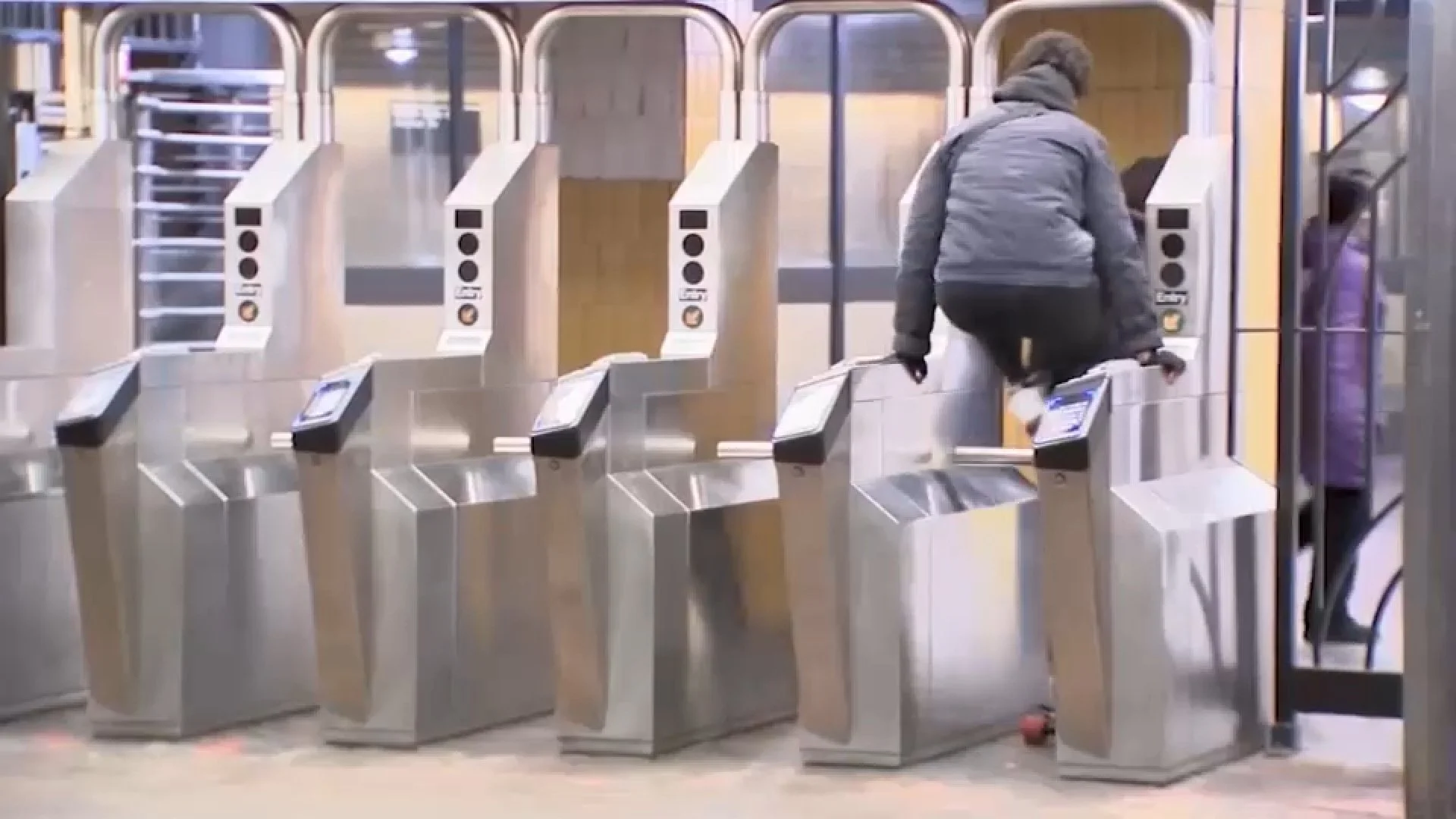America’s epidemic of rudeness
Fare evasion costs public transit systems hundreds of millions of dollars. It’s rude and selfish.
When my oldest friend, a baseball historian, visited last summer, we spent a pleasant afternoon at Nationals Park watching my beloved Washington Nationals lose to the Miami Marlins.
Pleasant, that is, until we left the ballpark on a packed escalator.
Halfway down, a young man threw up on my friend’s leg. He laughed uproariously and, without a hint of an apology, walked away.
“Unbelievable,” my friend exclaimed, as he wiped off his leg.
“So rude,” I agreed.
Dismiss this, if you like, as grumpy old men muttering about “the kids these days.” No doubt there are worse things to worry about.
But permit me to make the case, first, that Americans are suffering from an epidemic of rudeness, and second, that it matters more than you think. By corroding the ties that bind us, self-centered behavior makes it harder to solve big problems, ranging from political violence and polarization to climate change and homelessness.
If you haven’t noticed the rise in bad behavior, that may be because you’ve been staring at your phone. When we’re absorbed by our devices, we literally lose sight of the way our actions affect others.
Consider:
–A well-dressed teenager approaches the counter of a bagel shop in a prosperous Washington D.C. suburb. She says: “I need a sesame bagel with cream cheese.” No, actually, she doesn’t.
–Two young men vault the gates in a New York City subway station to avoid paying fares, as transit police look on. The agency that operates subways, buses and trains in New York estimates that fare evasion will cost it about $900 million this year.
–Drivers speed through residential neighborhoods, ignore stop signs, blast music with windows open and blare their horn when a gentle beep would suffice. Texting while driving is worse than rude; it’s lethal.
The list goes on. Children run wild where they shouldn’t. Parents yell at coaches and referees. Soda cans litter a country road.
Gross misbehavior starts at the top. President Trump is nasty and crude, qualities that evidently endear him to many of his followers. “Your countries are going to hell,” he tells delegates to the United Nations. “I hate my opponents,” he says, at the memorial service for activist Charlie Kirk.
Democratic elected officials are better, but not always. “I don’t swear in public very well but we have to fuck Trump,” said Oregon Congresswoman Maxine Dexter at a rally last winter.
We’ve come a long way from the days when President Ronald Reagan and his political opposite, House Speaker Tip O’Neill Jr., could do battle during the day and share a drink afterwards at the White House.
I know, I sound like an aging curmudgeon. But everyday rudeness has consequences that go beyond the degradation of public spaces. (Though that’s not great.)
I’m pissed off — pardon the expression — because I care about our country’s future. As anti-social behavior spreads, it reflects and reinforces a culture of self-centeredness.
—-
You can read the rest of this story at Medium. (It’s no longer behind the paywall.)
